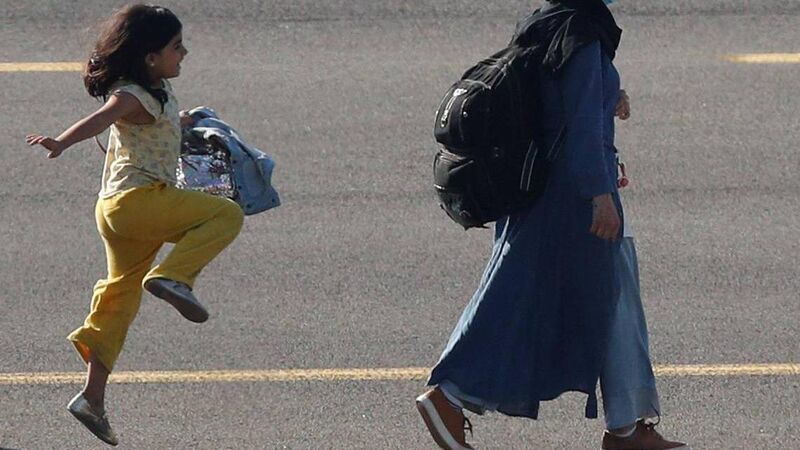Joyce Fegan: Welcome, little girl. And let's roll out the red carpet for refugees

The image of the little girl in yellow skipping along behind her parents after arriving to safety in Belgium having fled Afghanistan caught the imagination of many, including former Belgian prime minister, Guy Verhofstadt, MEP. Picture: Johanna Geron
WHEN people think about refugees coming to their country, they may fear that already limited resources will have to be divided among even more people.
This scarcity thinking closes our borders to those in need. This scarcity thinking shuts down our minds to solutions. And this scarcity thinking locks other human beings into their dire straits.












